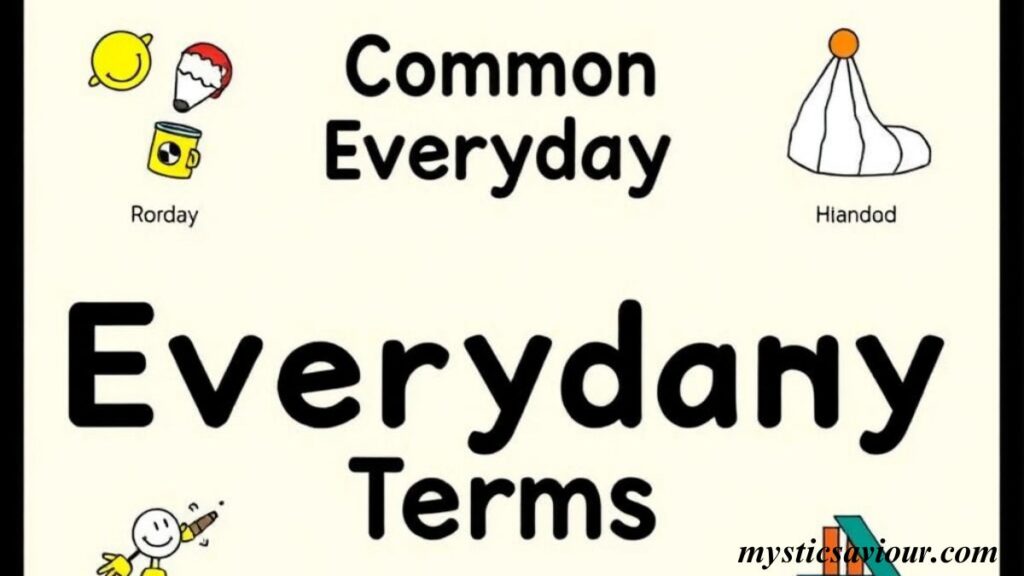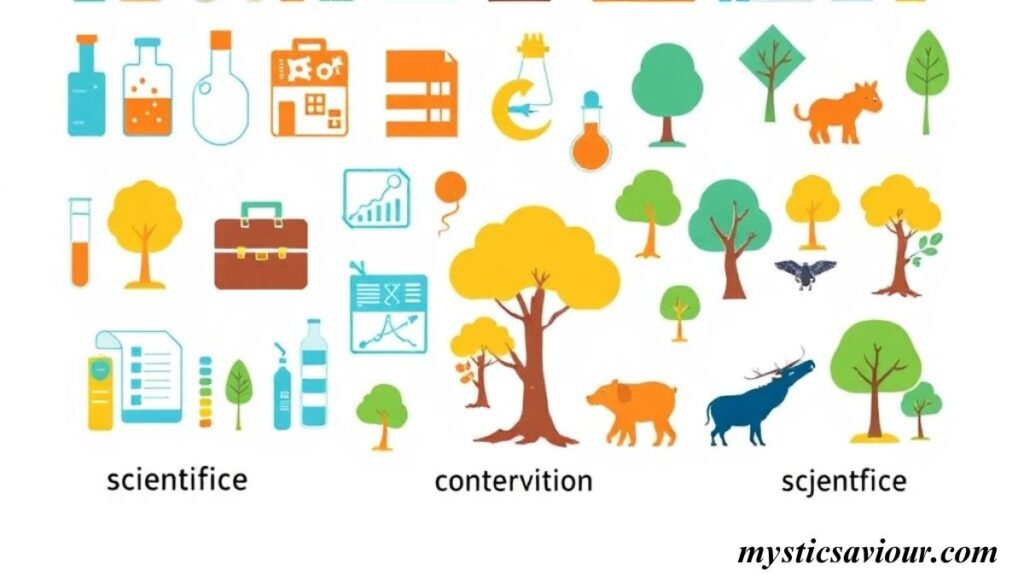The phrase “What Do You Call Someone Who Loves Nature” refers to individuals who possess a deep affection, admiration, and respect for the natural world. These people feel an emotional and spiritual bond with forests, wildlife, mountains, and every element of Mother Earth. They are often seen seeking peace and inspiration in the serenity of the woods, the rhythm of the waves, or the quiet charm of the countryside.
There’s a captivating beauty in the way these souls connect with the planet. They’re drawn to the scent of fresh air, the rustling leaves, and the endless wonders of the outdoors. For them, nature isn’t just scenery—it’s a sanctuary that nurtures creativity, mindfulness, and gratitude.
The expression “What Do You Call Someone Who Loves Nature” goes beyond simple admiration. It opens a world of fascinating words like biophile, nemophilist, tree-hugger, and environmentalist, each describing unique shades of love for the environment and the life it sustains.
The Basics: Common, Everyday Terms

Before we get into unfamiliar labels, let’s start where most of us live—using the language people understand.
Nature Lover / Nature Enthusiast
These are broad, welcoming terms.
- A nature lover is someone who feels deep affection for the natural world—its forests, rivers, animals, and plants.
- A nature enthusiast often suggests active interest: someone who reads field guides, goes on hikes, or collects stories about wildlife.
These labels suit people who don’t need high precision—they just want to tell the world, I love nature.
Outdoor Enthusiast
This term adds a twist: action.
An outdoor enthusiast loves being outside, doing things—hiking, camping, canoeing. Nature is not just admired, it’s explored.
Tree-hugger / Greenie
These are friendlier, sometimes tongue-in-cheek terms.
- Tree-hugger started as a pejorative but is now often worn proudly. It signals you care deeply about forests, trees, and environmental protection.
- Greenie (or “greenie”) implies someone who lives or thinks “green”—eco-friendly, concerned with sustainability, recycling, and renewable energy.
Each of these terms—nature lover, nature enthusiast, outdoor enthusiast, tree-hugger, greenie—offers a kind of simplicity and accessibility. They don’t demand you fit into a scientific role; they just welcome your love for the Earth.
The “-phile” & Root-Based Terms

When you dig into the roots of words, you get richer, more precise labels. Many come from Greek or Latin parts, especially “-phile” (meaning “lover of”).
Why “-phile” Words Exist
Using Greek or Latin roots gives words a precise flavor. It lets you name something very specific—“lover of forests,” “lover of live things,” etc. These terms often appeal to people who like exactness or poetic subtlety.
Here are some important “-phile” terms:
| Term | Root Meaning | Focus | Notes / Usage |
|---|---|---|---|
| Biophile | bios (life) + philia | All life | Someone with a profound love for living things |
| Nemophilist | nemos (grove, forest) + philos | Forests, woods | One with special fondness for trees, woods |
| Dendrophile / Dendrophilia | dendro (tree) + philia | Trees | Someone especially drawn to trees |
| Orophile | oros (mountain) + phile | Mountains | One who loves mountains |
| Pluviophile | pluvia (rain) + phile | Rain | Someone who loves rain and rainy days |
Let’s look at a few more in-depth.
Biophile
A biophile loves all forms of life—plants, animals, fungi, microbes, and ecosystems. The term comes from Greek: bios = “life,” philia = “love.”
If you plant native flowers to attract insects, birdwatch in your backyard, rescue stray animals, and care about whole ecosystems, biophile might resonate.
Nemophilist
A nemophilist has a special affection for forests and woods. The root nemos means grove or woodland. A nemophilist often feels calm and grounded in tree-shaded places.
For those drawn to quiet paths, dappled sunlight, mossy trunks, nemophilist captures depth beyond “forest lover.”
Some note that nemophilist is a rare word, not widely used, so using it might impress the nature-minded.
Dendrophile
If trees specifically call to your spirit, dendrophile is your word. You might find yourself hugging older trees, cataloging tree species, or advocating for native tree planting.
Specialty “-philes”
Words like orophile (mountain lover) or pluviophile (rain lover) let you get even more specific. If your heart lifts with mountain peaks or raindrops, these words capture that special love.
Scientific, Professional & Conservation Terms

Some people who love nature also study, protect, or manage it. These terms carry weight and context.
Naturalist
A naturalist is a person who observes, documents, and studies nature—often in a field setting. Think of someone with field guides, notebooks, and binoculars.
Their work may be informal (as a hobby) or professional. They often know flora and fauna in depth.
Environmentalist / Conservationist
These terms shift from loving nature to protecting nature.
- An environmentalist focuses on advocating for the environment—policies, recycling, climate action, and sustainability.
- A conservationist often works to preserve or restore ecosystems—forests, wetlands, and wildlife habitats.
Both roles tend to involve activism, science, and community work.
Specialists: Botanist, Zoologist, Ornithologist, Entomologist
If your love narrows down to plants, animals, birds, or insects, you might become:
- Botanist: studies plants
- Zoologist: studies animals
- Ornithologist: studies birds
- Entomologist: studies insects
These labels often imply training, research, or formal involvement. In daily conversation, you might not call yourself “entomologist” unless you actually study insects in depth—but you might say you’re an insect lover or “nature freak” with a special interest.
Context & Connotation: Picking the Right Term
Words aren’t neutral. Their tone, cultural resonance, and misunderstanding potential matter.
Tone & Audience
- If you write to everyday readers, nature lovers, or outdoor enthusiasts, it’s safe, inclusive.
- In a literary or poetic piece, a nemophilist or dendrophile adds flair.
- In science or activism circles, naturalist, conservationist, or environmentalist lends authority.
Cultural or Emotional Resonance
Which word feels you?
- If “tree-hugger” makes you smile, use it proudly.
- If “eco-freak” seems extreme, use it with care.
- If “biophile” gives your identity a deeper pulse, claim it.
Potential Misunderstandings
Words can be confused:
- Naturist is sometimes misheard for “nature lover,” but it usually means someone who practices nudism.
- Ecofreak or nature freak may carry negative connotations if used by critics, so context matters.
- Using rare words like nemophilist might require a parenthetical explanation, so readers don’t get lost.
Usage Examples & Comparison
Concrete comparisons and sample sentences bring these words to life.
Term Comparison Table
| Term | Meaning / Focus | Tone / Context | Sample Sentence |
|---|---|---|---|
| Nature lover | Affection for nature in general | Casual, broad | “She’s a nature lover who finds joy in any wild corner.” |
| Nature enthusiast | Interest + action in nature | Curious, active | “As a nature enthusiast, he tracks bird migrations every spring.” |
| Outdoor enthusiast | Action + outdoors | Sporty, adventurous | “Outdoor enthusiasts gathered for a canyon hike.” |
| Tree-hugger | Advocacy + love for trees | Playful, sometimes radical | “They called her a tree-hugger when she campaigned to protect the forest.” |
| Greenie | Eco-conscious person | Friendly, mild activism | “He turned his rooftop into a green oasis—true greenie style.” |
| Biophile | Love for all life | Poetic, philosophical | “You’re a biophile at heart—you can’t ignore any living thing.” |
| Nemophilist | Special love for woods | Romantic, niche | “As a nemophilist, she always escapes to a forest cabin.” |
| Dendrophile | Specific affection for trees | Precise, tree-focused | “His dendrophile nature had him cataloging every tree species.” |
| Naturalist | Observer / student of nature | Scientific, observational | “The naturalist recorded bird calls and insect sounds.” |
| Environmentalist | Observer/student of nature | Activist, policy-driven | “She’s an environmentalist who works on reforestation projects.” |
| Conservationist | Preserver of ecosystems | Restoration, protection | “A conservationist, he lobbied to save wetlands from development.” |
Examples in Context
“You’ve turned your balcony into a green oasis—it’s clear you’re a biophile at heart.”
“My brother, a dedicated nemophilist, spends weekends wandering new forest trails.”
“She’s a true tree-hugger, always advocating for policies that protect forests.”
“As a nature enthusiast, he owns every birding field guide under the sun.”
Which Term Fits You? (Self-Quiz)
- Do you love all living things (plants, insects, animals)? → Biophile
- Are you drawn specifically to woods/forests? → Nemophilist
- Do trees only capture your devotion? → Dendrophile
- Do you also protect, campaign, or restore nature? → Environmentalist / Conservationist
- Do you enjoy being outside doing stuff (hiking, kayaking)? → Outdoor Enthusiast
- Do you prefer words that everyone understands? → Nature Lover / Nature Enthusiast
Pick the one term that gives your love a voice—but know that some of us wear many labels at once.
Why This Topic Matters
You might wonder: Why obsess over naming this love?
Identity & Behavior
Calling yourself a biophile or nemophilist isn’t just vanity—it shapes how you see the world and act within it. A name can reinforce care, motivate action, and anchor you to communities of like-minded people.
Credibility in Writing & Activism
If you write a blog, give a talk, or start a campaign, choosing precise labels improves your authority. Calling yourself a naturalist or conservationist signals seriousness.
Community & Language
Sharing your label helps others find you. Someone who sees you call yourself a tree-hugger or nature freak might think: Hey, I like that too. It helps people connect.
Case Study: How People Use These Words in Real Life
Forest Retreat Community
In a woodland retreat community, members often identify as nemophilists or dendrophiles. On community message boards, you’ll see phrases like “the nemophilist heart among us gathers tonight under the oak canopy.” They host silent forest walks, leaf-pressing workshops, and evening “forest listening” sessions.
Environmental NGO Campaign
An NGO focused on deforestation chose the tagline “Biophiles United for Life.” They intentionally used “biophiles” to include all species in their vision. In speeches, they contrast biophile vs. necrophile (those who are indifferent to life).
Personal Blog
A blogger who gardens, hikes, watches birds, and advocates for recycling sometimes flips between nature lover, nature enthusiast, and eco-freak depending on tone—casual in daily posts, stronger when railing against climate inaction.
These real examples show how people wear multiple names and flex them contextually.
SEO & Keyword Strategy
Because the target keyword is “What Do You Call Someone Who Loves Nature”, we’ll build around it, but also include related terms. Here’s how to structure it:
- Title / H1: What Do You Call Someone Who Loves Nature? Terms & Meanings (explicitly includes the target)
- Use H2 / H3 headings with variations: Words for Someone Who Loves Nature, Meaning of Nemophilist, Nature Enthusiast vs Tree-hugger
- Sprinkle in exact keywords: Biophile, nature enthusiast, nemophilist, tree-hugger, greenie, naturalist, environmentalist, ecofreak
- Use LSI / semantic keywords naturally: “connection to nature,” “green living,” “environmental conservation,” “outdoor adventures,” “flora and fauna,” “ecological sustainability”
- Link internally (if possible) to related articles (for example, “how to become a naturalist,” “benefits of forest therapy”)
- Link externally to authoritative resources (botany databases, conservation orgs)
By weaving keywords organically, you avoid keyword stuffing and make your writing more readable.
Conclusion
The phrase “What Do You Call Someone Who Loves Nature?” reminds us that there are many ways to describe people who care deeply about the earth. Whether you call them biophiles, nemophilists, or simply nature lovers, they all share the same beautiful bond with the natural world. Their hearts find joy in green spaces, clean air, and the calm of the outdoors. They live with awareness, respect, and love for every living thing.
Understanding “What Do You Call Someone Who Loves Nature?” helps us see how powerful this connection can be. It’s more than a label—it’s a way of living that values sustainability, kindness, and balance with nature. Each word celebrates those who protect, explore, and cherish our planet. In every sense, they are the guardians of beauty, peace, and life itself.
FAQs
1. What do you call someone who loves nature the most?
A person deeply connected to the environment is often called a biophile or nature lover.
2. What is a nemophilist?
A nemophilist is someone who loves forests and feels peace and happiness among trees.
3. Is a tree-hugger the same as a nature lover?
Yes, but tree-hugger usually refers to someone who actively protects trees and supports environmental causes.
4. What’s the difference between an environmentalist and a naturalist?
An environmentalist works to protect the planet, while a naturalist studies and observes plants, animals, and ecosystems.
5. What do most people today call someone who loves nature?
In 2025, the most common modern terms are nature enthusiast, eco-conscious person, or biophile, reflecting growing environmental awareness.

Eddie Smith, the admin of Mystic Saviour, is a language enthusiast dedicated to exploring the art of words. Passionate about Word Mechanics, Name Narratives, and Linguistic Twists, he helps writers, marketers, and creatives unlock the full potential of language. Through Mystic Saviour, Eddie brings fresh, imaginative alternatives to everyday expressions, making communication more engaging and impactful.










